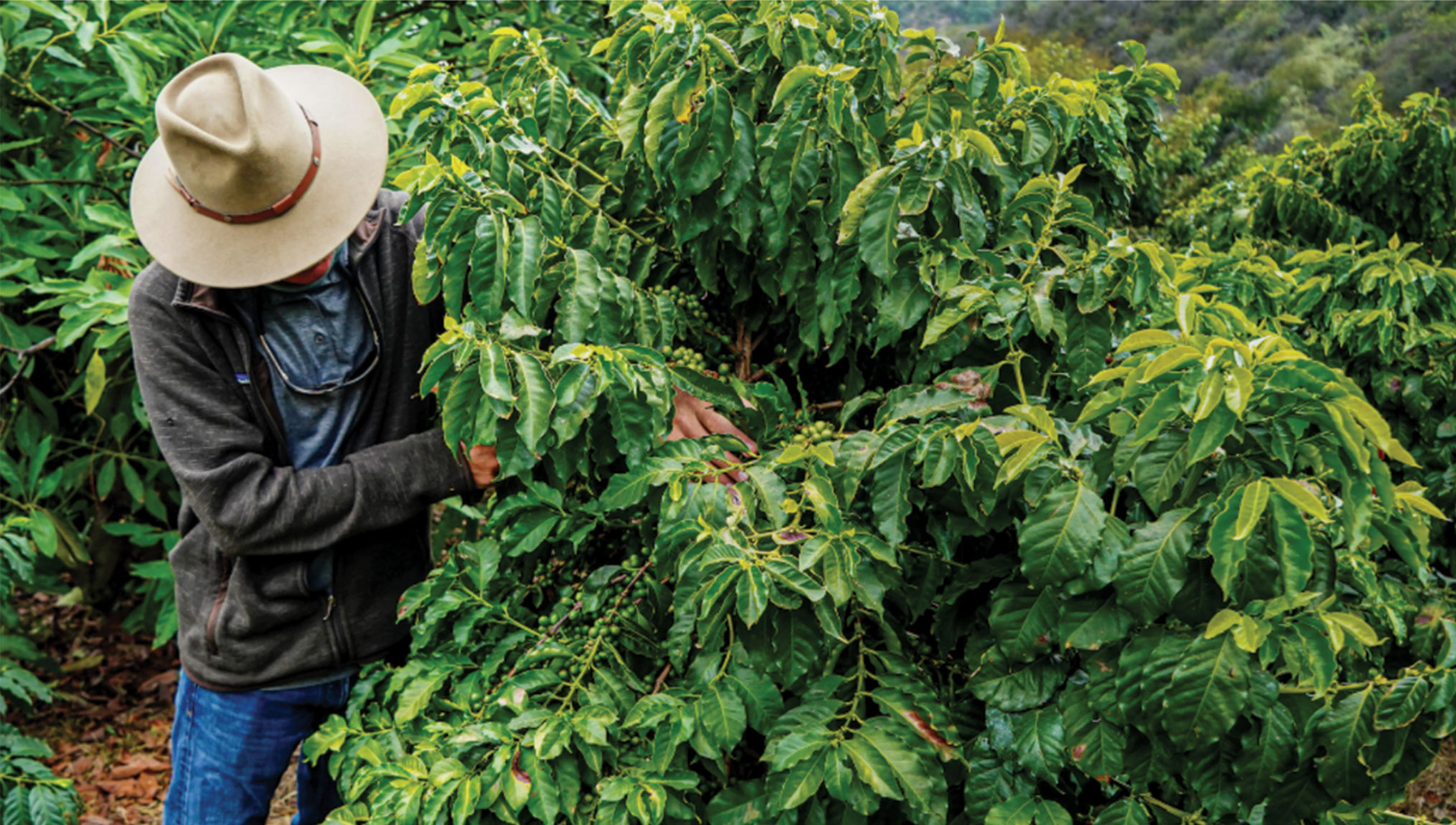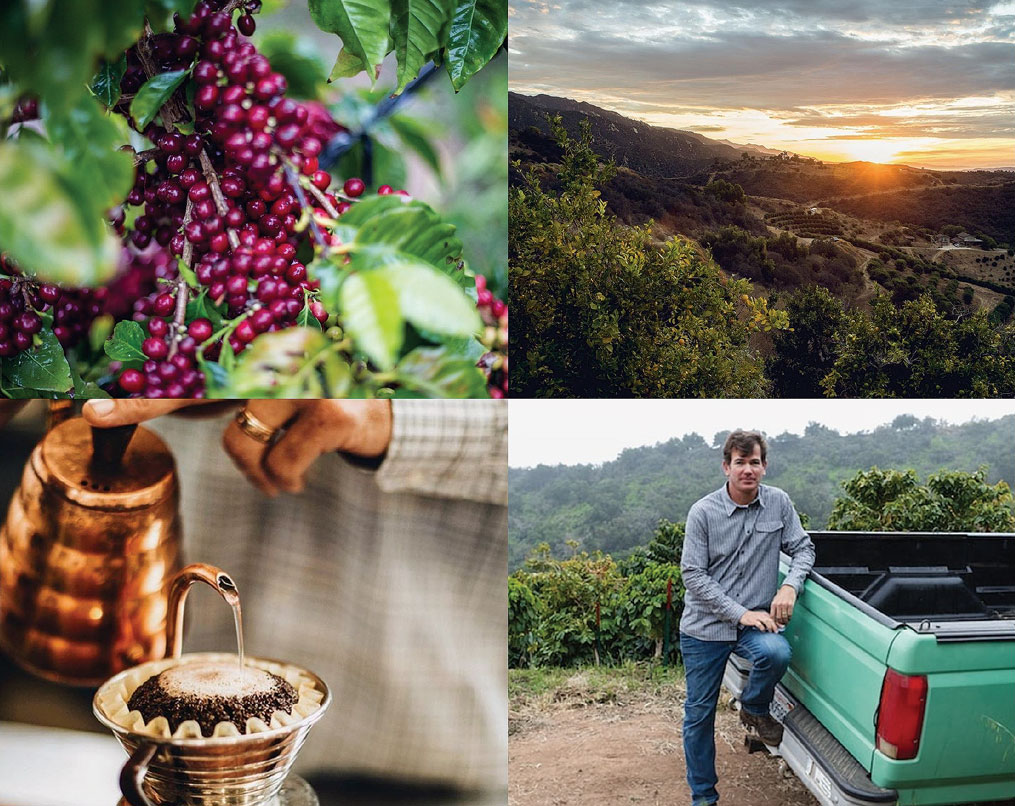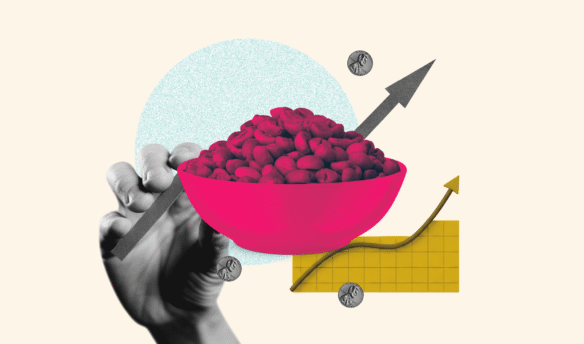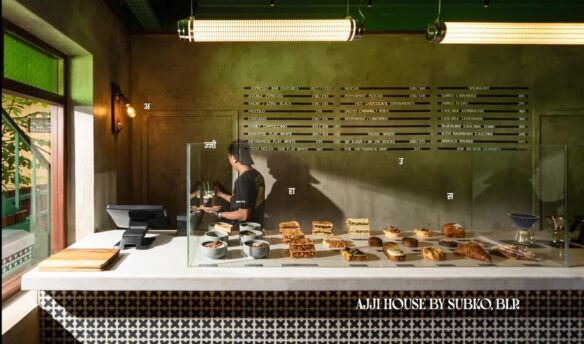FRINJ CEO, Jay Ruskey tending to coffee trees.
FRINJ Coffee, a Santa Barbara, California-based coffee breeder and luxury coffee producer, is working with the Gaviota Coast Conservancy and White Buffalo Land Trust for research efforts into how to incorporate regenerative agriculture farming practices in coffee crops. They hope to inspire more California farmers to incorporate coffee crops with this research and will share it with UC Santa Barbara.
FRINJ is working with the GCC to expand regenerative agriculture on the Gaviota Coast. GCC awarded FRINJ a $50,000 “Innovative Agroforestry and Regenerative Land Stewardship Project” grant to fund a three-year study focused on improving soil health, optimizing water use, and increasing ecosystem resiliency. In response, FRINJ will plant 1,800 trees on a 1.13-acre parcel of their Good Land Organics farm and grow Arabica coffees, mainly gesha. They’ll also plant Casuarina Equisetifolia for primary windbreaks and Ingas (ice cream bean trees) for overstory plantings, and study soil-building with cover crops. This demonstration project, with its research, testing, and educational components, will develop the knowledge base needed to advise and support other agricultural operators on the Gaviota Coast interested in pursuing these regenerative farming practices. FRINJ will document the project with time-lapse photography over three years to visually demonstrate the changes.
“We’re proud to work with the GCC to assess and develop new, sustainable farming practices that will create improved soil management and healthy ecologies in orchards,” says CEO of FRINJ Coffee, Jay Ruskey. “Incorporating trees into farmland benefits everything from soil health to crop production to the climate. Our findings will educate not only local growers but contribute to UC Santa Barbara’s environmental studies program, as well.”
FRINJ is also working with White Buffalo Land Trust (WBLT) in Summerland, California, a team of active land stewards, field researchers, and leaders committed to developing California’s Central Coastal bioregion into a thriving food system built on the regeneration of soil, ecosystems, and community.
WBLT, in collaboration with FRINJ, will plant 300 coffee shrubs of mixed varietals on their 12-acre demonstration farm and co-create a management plan that includes site and irrigation design, pruning, ground cover maintenance, nutrient cycling, plant health, and organic production.









